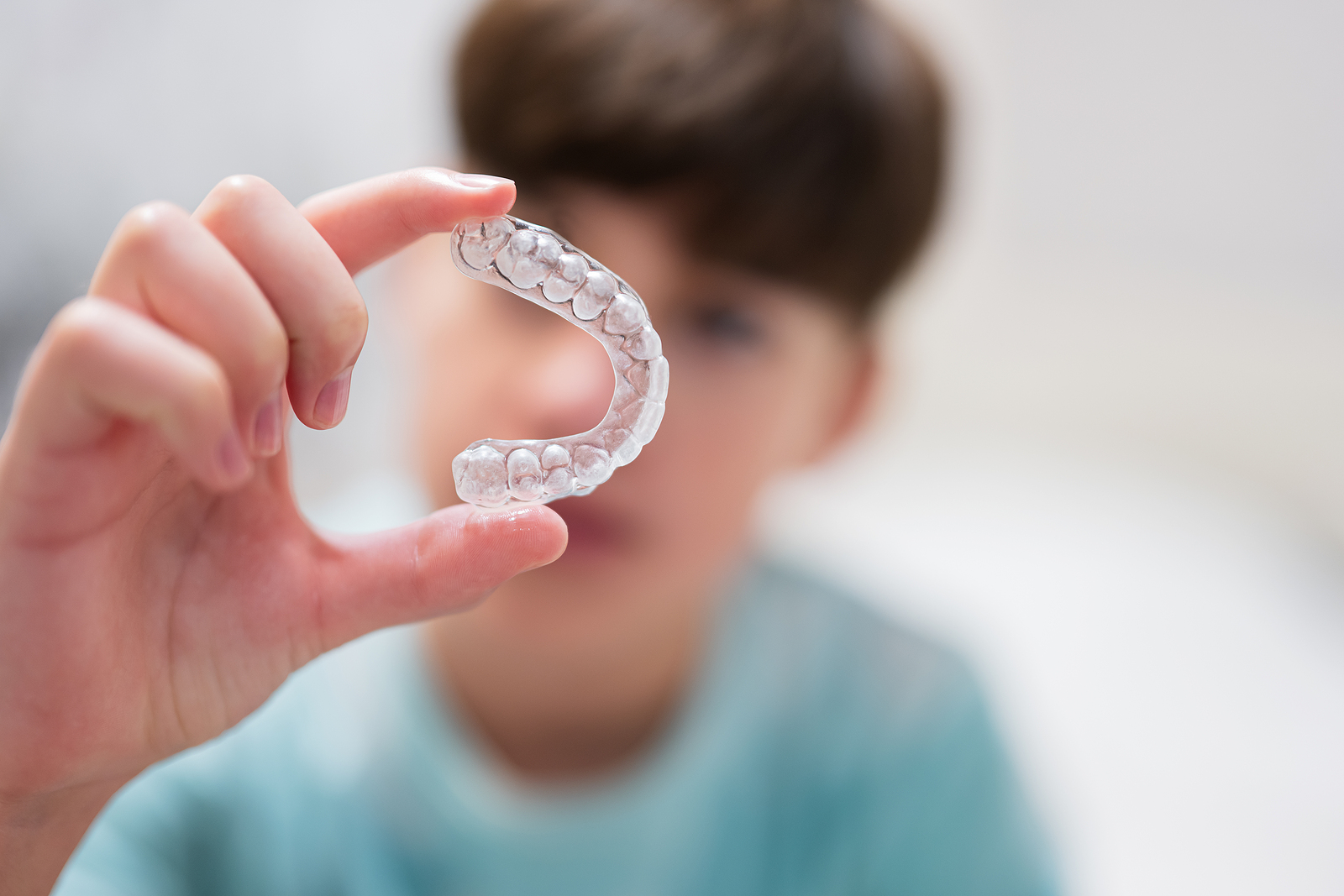To learn more, visit Georgetown Cosmetic Dentistry at 2440 M Street, NW, Suite 328, Washington, DC 20037, or call (202) 785-4141 for the best dental care.

Warning Signs of Gum Disease: When to See a Periodontist
Gum disease is often called the silent epidemic. Many people don’t realize they have it until it’s too late, leading to painful consequences. Your gums play a crucial role in your oral health, and ignoring early signs of trouble can lead to serious issues down the line.
Are you aware of what gum disease really is? Or do you know how easy it is for plaque and tartar to wreak havoc on your smile? Understanding these aspects can empower you to take control of your dental health before problems arise.
In this blog post, we’ll explore everything from the causes and symptoms of gum disease to when it's time to consult a specialist like a periodontist. Plus, we’ll share valuable tips for maintaining healthy gums and ensuring regular dental cleanings in Washington, DC are part of your routine. Let’s dive into this essential topic that affects millions every year!
What is Gum Disease?
Gum disease, also known as periodontal disease, is an infection of the tissues that surround and support your teeth. It begins with bacteria in plaque—a sticky film that forms on your teeth.
If not removed through proper dental hygiene, plaque can harden into tartar. This thick buildup irritates the gums, leading to inflammation known as gingivitis. At this stage, you might notice redness or swelling without any pain.
Left untreated, gingivitis can progress to periodontitis. This more severe form involves deeper tissue damage and bone loss around your teeth. As gum disease advances, it can result in tooth mobility or even tooth loss.
Understanding gum disease is essential for maintaining oral health. Recognizing its stages helps you take action before serious complications arise.
Causes of Gum Disease
Gum disease, also known as periodontal disease, primarily arises from poor oral hygiene. When plaque—a sticky film of bacteria—builds up on teeth and hardens into tartar, it becomes a breeding ground for harmful bacteria.
Genetics can play a significant role, too. Some individuals are more predisposed to gum issues due to hereditary factors. Hormonal changes during pregnancy or menopause may further increase susceptibility.
Lifestyle choices such as smoking can exacerbate the situation. Nicotine restricts blood flow to the gums, making them less resilient against infection.
Certain medical conditions like diabetes and autoimmune diseases can weaken the body's ability to fight infections. Medications that reduce saliva production can also create an environment conducive to gum disease.
Diet impacts gum health significantly; a lack of essential nutrients weakens the immune system's response to bacterial threats in your mouth.
Symptoms of Gum Disease
Gum disease often starts subtly, making it easy to overlook the early signs.
- One of the first symptoms is persistent bad breath that doesn’t go away with brushing or mouthwash.
- You might also notice your gums bleeding during routine activities like brushing and flossing. This is a clear indicator that something isn’t right.
- Another common symptom is gum swelling or tenderness. Healthy gums should feel firm, not soft or inflamed.
- As the condition progresses, you may experience receding gums, where they pull away from your teeth, exposing more of their surface than usual.
- If you find that your teeth feel loose or are shifting positions in your mouth, it's time to take action. These signs can lead to serious issues if left untreated. Staying alert to these changes will help maintain oral health and overall well-being.
The Importance of Regular Dental Check-Ups
Regular dental check-ups play a crucial role in maintaining oral health. These appointments aren’t just about cleaning teeth; they are a comprehensive assessment of your gum health and overall mouth condition.
During these visits, dentists can spot early signs of gum disease or cavities before they escalate into serious issues. Early intervention often leads to less invasive treatments and better outcomes.
A professional cleaning helps remove plaque and tartar buildup that regular brushing might miss. This is vital for preventing periodontal diseases, which can cause tooth loss if left untreated.
Moreover, routine check-ups allow you to discuss any concerns with your dentist. They provide personalized advice on care techniques tailored to your specific needs.
Making time for these visits ensures you stay ahead of potential problems while contributing positively to your long-term health strategy. Prioritizing dental check-ups means investing in a healthier smile and body.
When to See a Periodontist
Recognizing when to see a periodontist can be crucial for your oral health. If you notice persistent bad breath despite regular brushing and flossing, it may signal an underlying issue.
Gums that bleed during brushing or eating are another red flag. Healthy gums should not bleed easily; this can indicate gingivitis or more severe gum disease.
If you experience receding gums, exposing more of your teeth, it's time to seek professional help. This condition can lead to tooth sensitivity and even loss if left unchecked.
Loose teeth or changes in bite alignment also warrant immediate attention from a specialist. These symptoms often suggest advanced periodontal issues requiring expert intervention.
Don’t wait until the pain becomes unbearable. Proactive visits to a periodontist can help maintain your dental health and prevent further complications down the line.
Treatment Options for Gum Disease
Treatment for gum disease varies based on its severity.
- For mild cases, professional dental cleaning in Washington, DC, can effectively remove plaque and tartar buildup. This process helps restore gum health and prevents further issues.
- If the disease has progressed, a periodontist may recommend scaling and root planing. This deep-cleaning procedure targets below the gum line to eliminate bacteria and smooth out the tooth roots.
- In more severe cases, surgical options like flap surgery might be necessary. During this procedure, gums are lifted back to access deeper infection areas before they are stitched back into place.
- For persistent problems, regenerative procedures could be utilized to encourage bone growth lost due to periodontal disease. These treatments aim to restore your oral health as much as possible while preserving your natural teeth.
- Regular follow-ups will help monitor progress post-treatment and ensure that your gums remain healthy over time. Contact us to learn more.
Prevention Tips for Maintaining Healthy Gums
Maintaining healthy gums is easier than you might think.
- Start with a solid oral hygiene routine. Brush your teeth at least twice daily using fluoride toothpaste. Don’t forget to floss every day to remove plaque from between the teeth.
- Regular dental visits are crucial for gum health. Professional cleanings help eliminate tartar buildup that brushing alone can miss. Aim for biannual appointments, especially if you're in need of dental cleaning in Washington, DC.
- Consider incorporating an antibacterial mouthwash into your routine. This can reduce bacteria and promote healthier gums.
- Watch what you eat as well! A balanced diet rich in vitamins C and D supports gum tissue and overall oral health.
- Avoid smoking or tobacco products; they significantly increase the risk of gum disease by impairing blood flow to the gums.
- Stay hydrated, too; water helps wash away food particles and bacteria, keeping your mouth fresh and clean.
Conclusion
Gum disease is a serious condition that affects many people, yet it often goes unnoticed until it's advanced. Understanding the warning signs and symptoms can help you take proactive steps toward better oral health. Regular dental cleanings in Washington, DC, are essential for early detection and prevention of gum issues.
If you notice any symptoms like persistent bad breath or swollen gums, don’t hesitate to reach out to a periodontist. Catching problems early can save your teeth and improve your overall well-being.
Remember that maintaining healthy gums starts with good oral hygiene habits at home combined with professional care. By prioritizing regular check-ups and being mindful of changes in your oral health, you can keep your smile bright and avoid complications down the road. Taking these steps now will ensure healthier gums for years to come.
Office Hours
MON - THU8:00 am - 4:00 pm
FRIBy appointments only
SAT - SUNClosed
2440 M Street, NW, Suite 328,
Washington, DC, 20037
Phone: (202) 785-4141Text Us: (202) 785-4141




comments